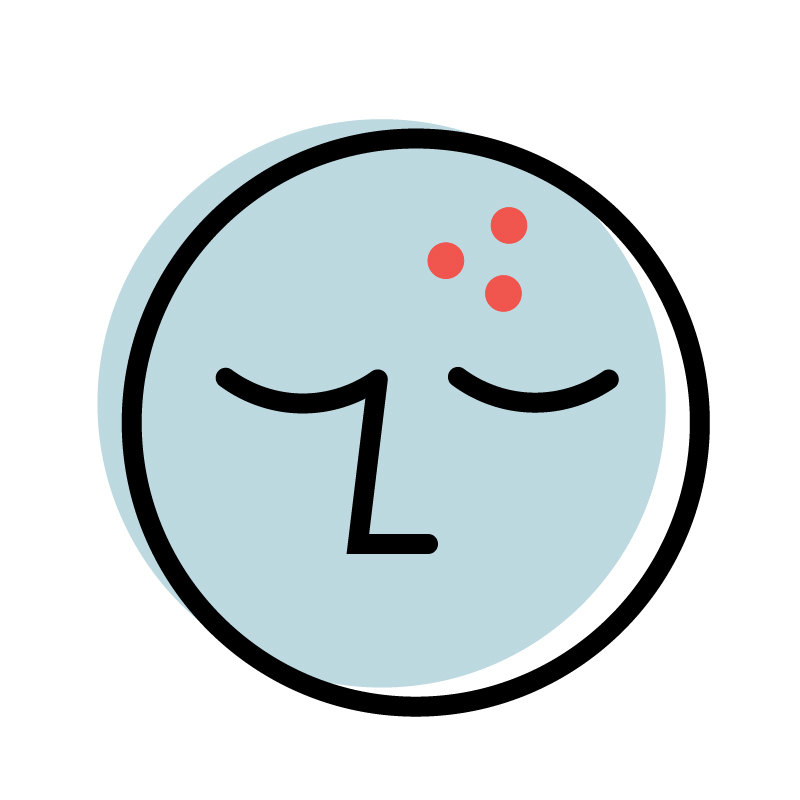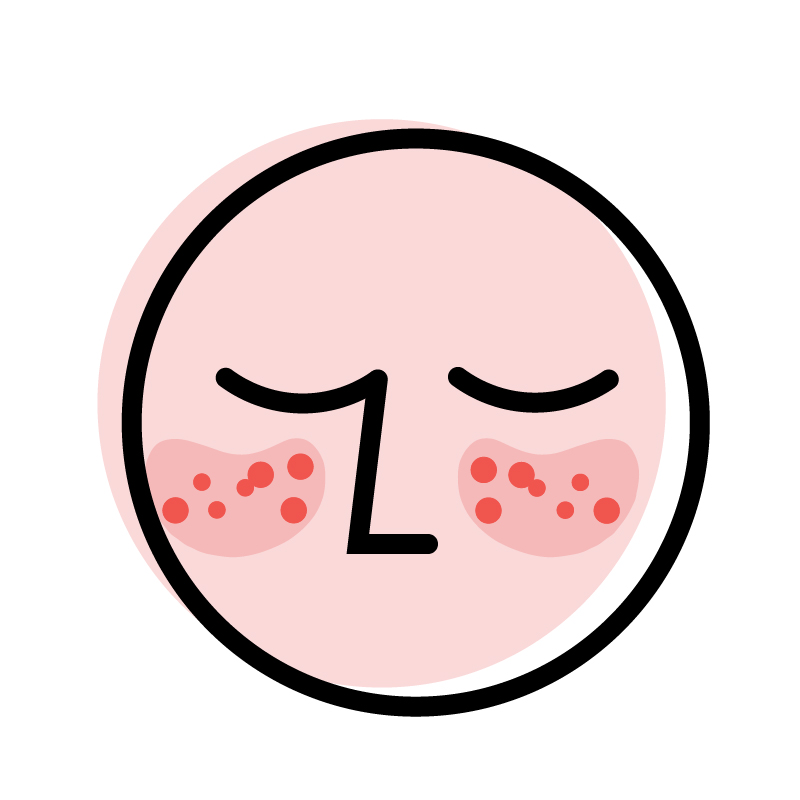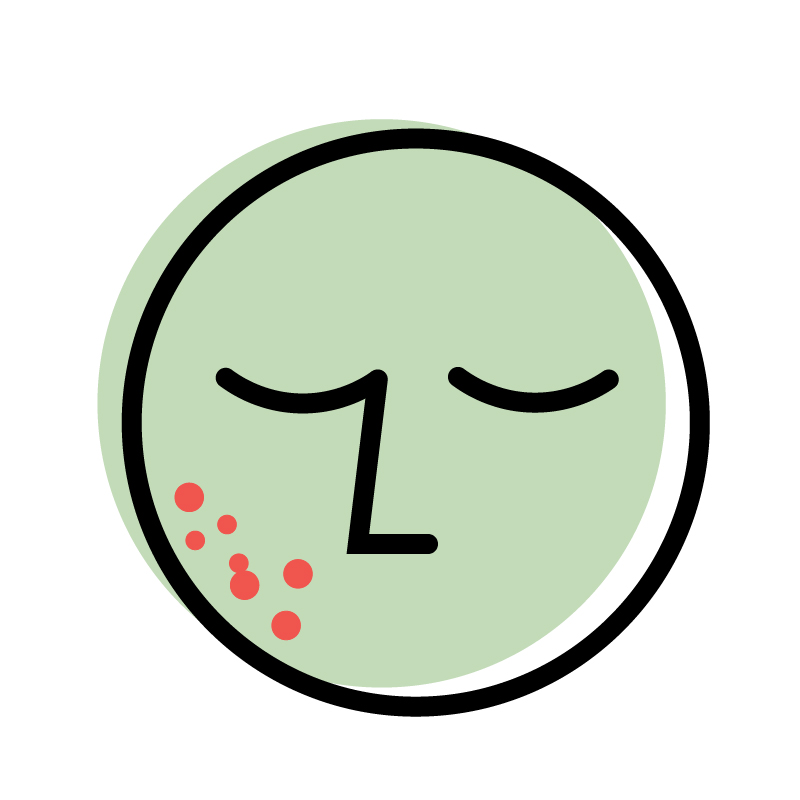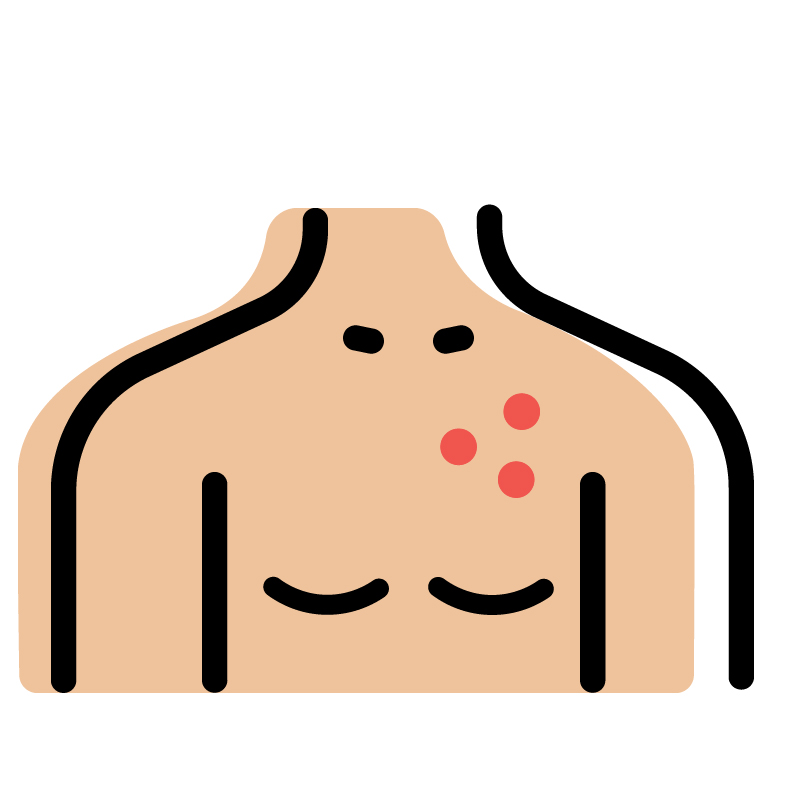Acne: Types, Causes, Treatment, and Prevention
While pimples and other signs of acne are most common among teens, acne can affect people of all ages. There are many treatment options, making deciding where to start a difficult task. Learn more about acne types, causes and prevention to feel confident on your skin care journey.
What Are the Different Types of Acne?
One of the most common types of acne is comedones. You may know these by their other names, blackheads and whiteheads. Blackheads (open comedones) happen when your pores dilate after getting clogged. Whiteheads (closed comedones) occur when your pores seal up after getting clogged.
Either way, you’re in for annoying little bumps around your face. The good news? These guys are non-inflammatory acne, meaning they won’t cause redness and irritation.
Papules and pustules, on the other hand, are inflammatory acne. This means they cause red and swollen skin. Papules occur when bacteria and oil break through a pore’s walls, causing red bumps. Pustules take things one step further when the bacteria form into a pus-filled bump.
These types of acne all affect the surface layer of skin, but a type of severe acne called Cystic acne occurs when pores clog deep inside the skin, causing even larger and more painful inflammation and pus-filled bumps that can burst. Another type of severe acne is nodules, which are harder and longer lasting.
If you leave cystics and nodules untreated over time, eventually they can result in acne conglobata, which is a widespread inflammation of the skin’s surface. These inflammatory lesions can eventually cause scarring and will require long-term treatment. Another serious form of acne is acne fulminans, which comes on abruptly and can result in painful, bleeding ulcers.
A less common type of acne is fungal acne — caused by inflammation of hair follicles because of too much yeast.
Where Does Acne Most Commonly Occur?
Acne most commonly happens in parts of the body with a lot of oil glands. These glands produce sebum, a waxy substance that keeps your skin moisturized and protected. Your forehead, nose, and chin — otherwise known as the T-zone — all produce a lot of sebum and are susceptible to acne. Other parts of the body with a lot of sebum include the upper back, shoulders, and chest.
What Are the Factors That Contribute to the Developing of Acne?
Acne is primarily caused by dead skin cells clogging up your pores and causing sebum or bacteria to build up. Certain factors make this more likely to happen, such as taking certain medications, experiencing too much stress, or simply being genetically predisposed to acne.
What Are the Clinical Features of Acne Vulgaris?
Acne vulgaris — the medical term for regular old acne — can have a variety of features. You may have large, red, or tender bumps. You may also have pus-filled zits or tiny blackheads across your face. It all depends on the type of acne you’re experiencing.
Symptoms and Causes of Acne
If you’re suffering from open comedones, you’ll likely see small dark-colored spots on your face. They may look like dirt, but this is just how light reflects off a clogged follicle.
Closed comedones, on the other hand, are small white bumps. They won’t be inflamed or red.
With both of these, you won’t feel pain or swelling — you’ll just notice them when you look in the mirror.
Papules are a different story. These start as small bumps that quickly become red and inflamed — maybe even painful to the touch. Pustules are similar, but they’ll have a white center. This is pus, and you may be tempted to squeeze it out, but don’t! Doing so can cause acne scarring.
Finally, cysts and nodules are extremely large, painful bumps. You’ll be able to tell the difference because nodules are hard and solid, while cysts are pus-filled and can eventually erupt.
What Are the Risk Factors for Developing Acne?
Certain types of people are more likely to develop acne. For example, acne is more common in teenagers because of their overactive hormones. Androgen hormones play a big role in helping the body develop during puberty, and unfortunately, they also stimulate excess production of sebum. This can lead to breakouts or severe acne.
Women who are menstruating or going through menopause are also at a higher risk of mild acne because of hormonal fluctuations. People taking certain medications, like lithium, testosterone, or corticosteroids, may have a higher risk of acne as well.
And if you experience a lot of stress, this can trigger the release of the hormone cortisol which may make your acne worse.
What Causes Adult Acne and How to Get Rid of It?
As an adult, you might be wondering — why the heck am I still getting pimples?
There are a few causes of adult acne, the main of which is having oily skin. When your skin produces too much oil, it can trap dead skin and lead to clogged pores at any age.
Oil is produced by the sebaceous gland. One of these is located in each of your pores. Unfortunately, some people are just born with overzealous sebaceous glands that produce too much oil. For others, their oil production may be linked to hot and humid weather conditions or not drinking enough water.
Whatever the case, your best treatment option is to maintain a regular skincare routine that keeps your pores clean while reducing oil production. You may want to try topical treatments containing retinoids or antimicrobials. Retinoids help to keep your pore follicles open, while antimicrobials attack the bacteria that cause inflammation.
You can also try reducing the carbohydrates in your diet, eliminating stress, and drinking more water.
Can Depression and Anxiety Contribute to Acne?
Yes, depression and anxiety can contribute to acne, though they don’t cause it. When you’re depressed or anxious, you likely won’t be able to maintain a regular skin routine. This means your pores might become clogged, leading to more severe breakouts or acne lesions.
Diagnosis and Treatment of Acne
Treatments for acne all depend on the severity. For simple cases, using a face wash that has benzoyl peroxide or salicylic acid might do the trick. Benzoyl peroxide attacks acne-causing bacteria — better known as Cutibacterium acnes — on the surface of your skin, while salicylic acid helps to remove dead skin cells.
If your acne is more stubborn, you’ll likely want to try a topical retinoid. These are prescription vitamin A-based creams that help to exfoliate the top layer of skin, reducing the buildup of dead skin cells and keeping pore unclogged.
If you’re still struggling with acne after that, the next step is oral antibiotics. These might include azithromycin, minocycline, or doxycycline, and they’re intended to kill the C. acnes bacteria causing your breakouts.
For painful nodules, you can also try steroidal injections to reduce swelling.
When Should I Call the Doctor About Acne?
Any time is a good time to reach out to a medical provider about acne vulgaris. There’s not a certain timeframe or symptom level you have to wait for. If your pimples are interfering with your self esteem or well-being, contact a medical professional. They’ll be able to recommend personalized treatments that can end (or at least improve) your mild, moderate or severe acne.
What Is the Best Treatment for Mild to Moderate Acne?
For most people, a topical retinoid is the best option for their acne. One commonly prescribed option is tretinoin cream. It works by unblocking pores. And as a bonus, it also increases collagen production and reduces hyperpigmentation, which should lead to firmer, more even-toned skin.
When Should Someone Start Acne Treatment?
You should start acne treatment as soon as you notice the signs and symptoms of a breakout. At first, trying at-home treatments is a good idea. These work for many people.
But if you’re still struggling with stubborn pimples that just won’t leave you alone, try reaching out to a doctor for prescription acne treatments. This is especially important if you have inflammatory acne that’s causing pain — especially if you don’t want to end up with acne scarring.
What Is the Best Skin Care Routine for Acne?
The best skincare routine for acne typically involves four key steps. First, you’ll want a cleanser that removes dead skin cells and unclogs pores. Your medical provider might recommend a benzoyl peroxide cleanser, or a mild one.
After that, you should apply your acne medication and let it absorb fully. Moisturizer comes next. Choose one that is marked as oil-free and non-comedogenic to make sure you aren’t adding more oil to your overactive oil glands.
In the mornings, the last step is UV protection. This is especially important because some acne medications can make your skin more vulnerable to sun damage.
When Should I See a Healthcare Provider About My Acne?
We can’t state this enough — you can see a healthcare provider any time your acne is making you uncomfortable, either about your appearance or because of the pain and inflammation. They can take a look at your situation and make a professional recommendation about what treatments or lifestyle modifications to try. Even if they don’t recommend prescription treatment yet, they can still be a valuable resource for all your skincare questions.
You should also consult with a medical provider if you think you might be experiencing hormonal acne. Whether it’s from monthly hormonal changes, puberty, or even birth control, hormonal acne can be a little trickier to target. A doctor can work with you to address your hormonal levels to fight acne at the source rather than just putting a band-aid on your symptoms.
What Should I Consider When Deciding About Acne Treatment?
One major thing to consider before adopting a new acne treatment is how it will affect your skin. Yes, you’ll hopefully see less redness and inflammation. But it can also have other side effects, like making your skin more susceptible to sun damage.
What this means is you might get sunburned easier. Over time, repeated sunburn can lead to more wrinkles, hyperpigmentation, and even skin cancer. Luckily, this shouldn’t be a dealbreaker. All it means is that you’ll need to wear UV protection anytime you’ll be outdoors. Still, if you’re not used to applying sunblock, it could be a big change you’ll need to consciously think about.
You’ll also want to make sure not to overdo it when you first begin acne treatment. What we mean by that is to start with the lowest strength treatments and see if they’re effective. If they’re not, then you can move to stronger treatments. Stronger treatments can have more side effects, like dry skin or affecting your gut’s microbiome, so it’s best to wait to try them unless nothing else is working.
How Can You Book an Appointment Online With a Doctor for Acne?
Ready to say goodbye to your acne issues? It’s easy with our service. All you have to do is fill out an online assessment that asks you questions about your skin and health history. This gives your doctor or other medical provider some background information on your problems so they can make informed decisions about your care.
You’ll also snap a few photos of your acne. That way, your doctor can see exactly what you’re working with.
After that, your doctor will review your info and create a personalized acne treatment plan just for you. After you’ve been following your treatment for about 10 weeks, the medical provider will recommend a follow-up assessment to see how everything is going.
























